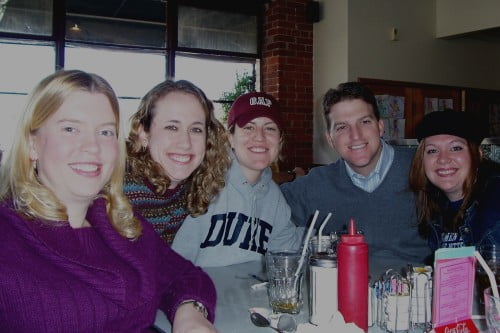 Where would you and I be today without the people we call "friends?"
Where would you and I be today without the people we call "friends?"
Who else do we have to call when we have the most horrible day imaginable?
How else would we have gotten through those "ugly cry" years?
Who else would we turn to when the best, beyond the best thing happens to us?
Especially as our society has become more and more mobile all the time and we don't all live in the same town as a our biological families forever, friends have become essential to our being.
In fact, recently the Huffington Post said that if you want to live to 100, the quality of your relationships has a lot to do with this.
When I first was introduced to Kevin in Washington DC over 9 years ago, meeting his friends and attending their yearly "Bring Back the Love" getaways to the beach became a rhythm of our life together. Though he never explicitly said it, if his friends didn't like me, then I was probably not going to a last.
And the same was true for me.
Friends are not only important to life within a marriage but all stages of life, married or single alike. I've come to believe that we all need friends both the long-distance kind and the up close and personal kind. 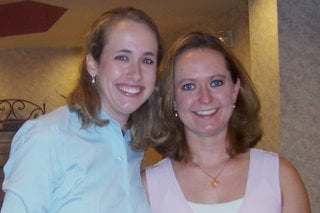
Those friends that we share life-long history with AND those whom we can call at a moments notice to go on a walk or to shop for something we just need a second opinion about!
Yet most of us struggle in at least one of these catagories. Especially in the post college or graduate years, it takes work. It takes time. It takes trust. It takes vulnerability. It takes moving to a new city and it sucking for awhile.
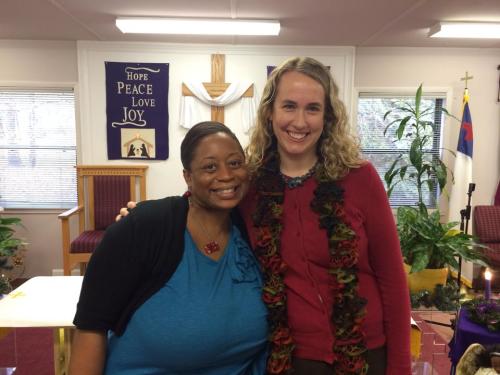 But, no matter if the friend of yours lives next door or two plane rides away, there's a word that describes what keeps good friendships going. And this is commitment. Lewis B. Smedes says this in his work, Caring and Committment:
But, no matter if the friend of yours lives next door or two plane rides away, there's a word that describes what keeps good friendships going. And this is commitment. Lewis B. Smedes says this in his work, Caring and Committment:
Not even mutual admiration is, by itself, enough to keep a friendship alive that long. For one thing we discover somewhere along the line that even people we admire have feet of clay. The best of us is flawed. Our flaws show through eventually; we disappoint our friends, and sometimes their disappointments hurts enough to wound our friendship. . . .
Besides, even friends who admire each other a lot drift a part when one moves to another part of the country. If I move away and don't see my friend for 5 years, and do not stay in close touch, our friendship is likely to die of malnutrition, with dignity maybe, and peacefully, but with the same result of dying. I may still admire him [or her], but I would admire him [or her] as a person who used to be my friend.
If friendships like these happen to last a lifetime, it is probably because they are more than friendships of affection, or usefulness or admiration. Most likely, they are held together because the friends are committed to each other.
So, who you want to do life together with? Who do you need to stick close to, no matter what? And, when is the last time you called them? Or texted them to just say hello? When is the last time you made a trek across the country (or a continent) just because you wanted to see their face?
We all get busy. And we all neglect relationships from time to time. To love someone is not to be there for every moment that your friend wants you to be at, but . . .
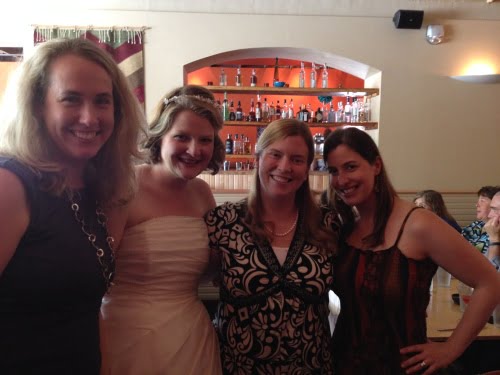
Our life schedules reflect what is important to us the most.
So, what does your monthly calendar say about your friendships?
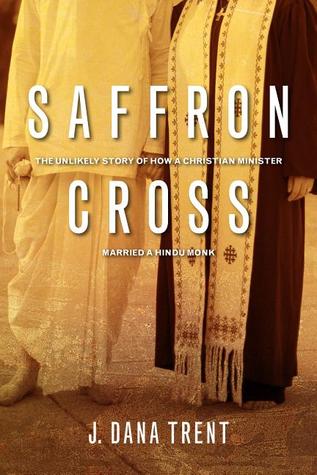 Next week, a dear friend from seminary is hitting an amazing life milestone. J. Dana Trent's first book: Saffron Cross will be released.
Next week, a dear friend from seminary is hitting an amazing life milestone. J. Dana Trent's first book: Saffron Cross will be released.
And I think you should read it. Not just because I know and like Dana as a person, but because I've read it and know you'll love it too.
Saffron Cross is a breath of fresh air to the conversation not only about interfaith marriage but what it means to live in an interfaith society.
With careful attention to not only her experience of Christianity but the Hinduism of her husband, Dana provides a grace-filled memoir of what it looks like to embrace the faith of another not only when it is sexy but also when it is not.
In a culture where it is assumed that 1+1 faith = no faith at all, Dana provides a vivid portrayal of how she and her husband, Fred are forging a new path-- a path rich in mutual learning, compromise, but most of all love for one another's faith experiences.
As you read Saffron Cross not only will you grow alongside the author both in the foundational principles of Christianity and Hinduism-- which Dana Trent does a great job of describing-- but of what deepening a spiritual life looks like in a modern paradigm.
We learn from Dana that just because you are ordained in a tradition, it doesn't mean its faith has yet seeped its way into you.
We learn from Fred that just because you leave a faith tradition for another (as he did with Christianity for Hinduism) it doesn't mean that there is not still much to learn from your roots.
This is a memoir not just for those already involved in interfaith relationships or ministries, but all of us who want to understand how to grow in faith alongside all our neighbors. Because, as Saffron Cross shows us, we are indeed more alike than we are different in our desire for God-- we just have to do the work to see it for ourselves.
In a world where violence occurs over religious affiliation all the time (as happened just last week in Kenya and Pakistan), we need more stories like the ones that the Trent/ Eaker household so willingly shares.
A couple weeks ago with Kevin out of the country for work and no particular geographic place I needed to be I packed up from DC and headed south toward North Carolina.
While I was in seminary I worked to keep my student debt at $0 as a student associate pastor at a rural United Methodist Church.
For two academic years, New Sharon United Methodist Church was my home.
It was a win-win for both the church and me, I believe. They got extra pastoral help. I got valuable experience as a pastor in an affirming environment. I taught them that all folks with Baptist roots aren't crazy. They taught me the joys of entering deeply into their lives. We loved each other. And I made some life-long friends as a result of being a part of this community.
So, it feel natural to call some New Sharon church members who have abided in my life since then-- and ask them if I could stay with them when I came to town. Tim and Debbie Smith were great to say "Yes!"
In being in North Carolina, the land of many trees, I remembered who I was. And I got a lot of writing done surrounded by good company and food.
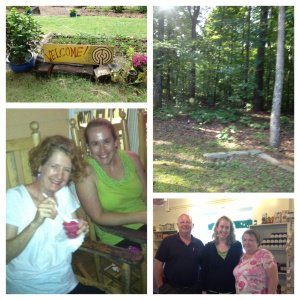
Not only through the gracious hospitality of my hosts, but through numerous lunch and dinner conversations and even a visit back to choir practice at my old church.
I heard things like, "We still think of you all the time . . . We are so glad our paths crossed when they did. . . . I wish you lived closer."
I even got to reconnect with an older church member, Bobbie Hunt who told me that she has a bookmark I gave her after my visit to Africa in 2005-- and that she prays for me daily. Every time she sees the bookmark, she said that she prays for me! I was amazed and tears came to my eyes as I heard this. Not only did I have no idea I'd made any impression on her life, but to know of her daily prayers for me was amazing (especially considering so much of Kevin's work with FTC is now in Africa!).
North Carolina was good for my soul.
I remembered I came from somewhere-- including there.
I remembered that I have more people who love me than I realize from my current experience in a new place.
I remembered the joy that comes from the calling of being a particular group of people's pastor.
I remembered that I have a home to go back to anytime I forget.
Durham, Hillsborough and New Sharon United Methodist friends, I love you. Thanks for reminding me again how much you love me too.